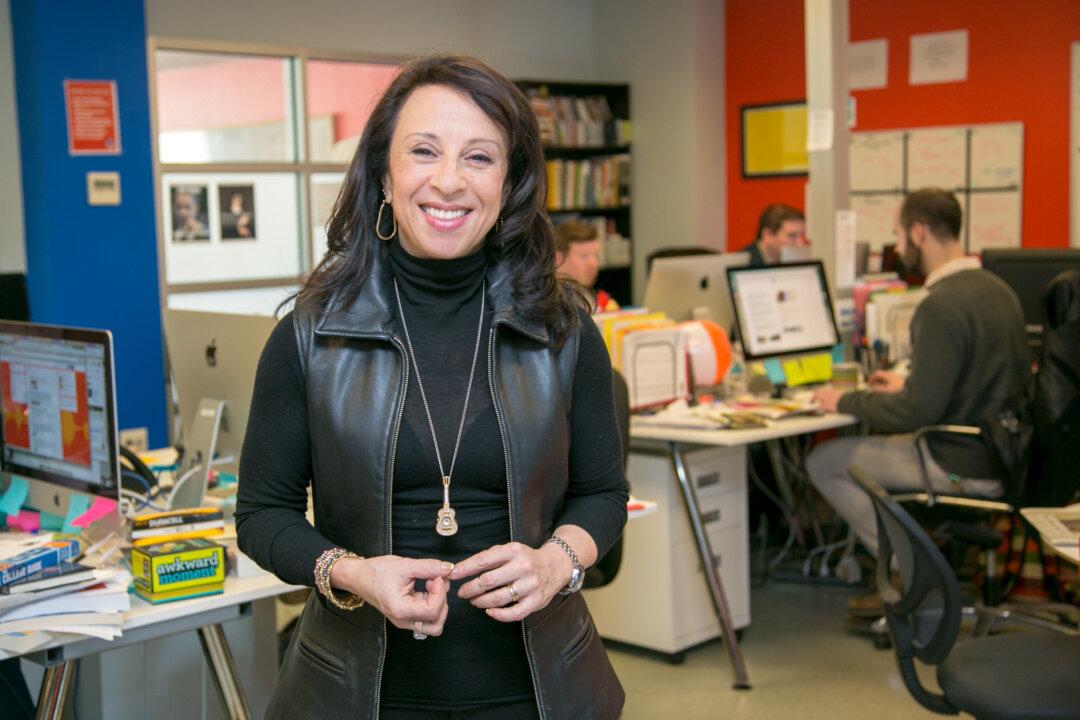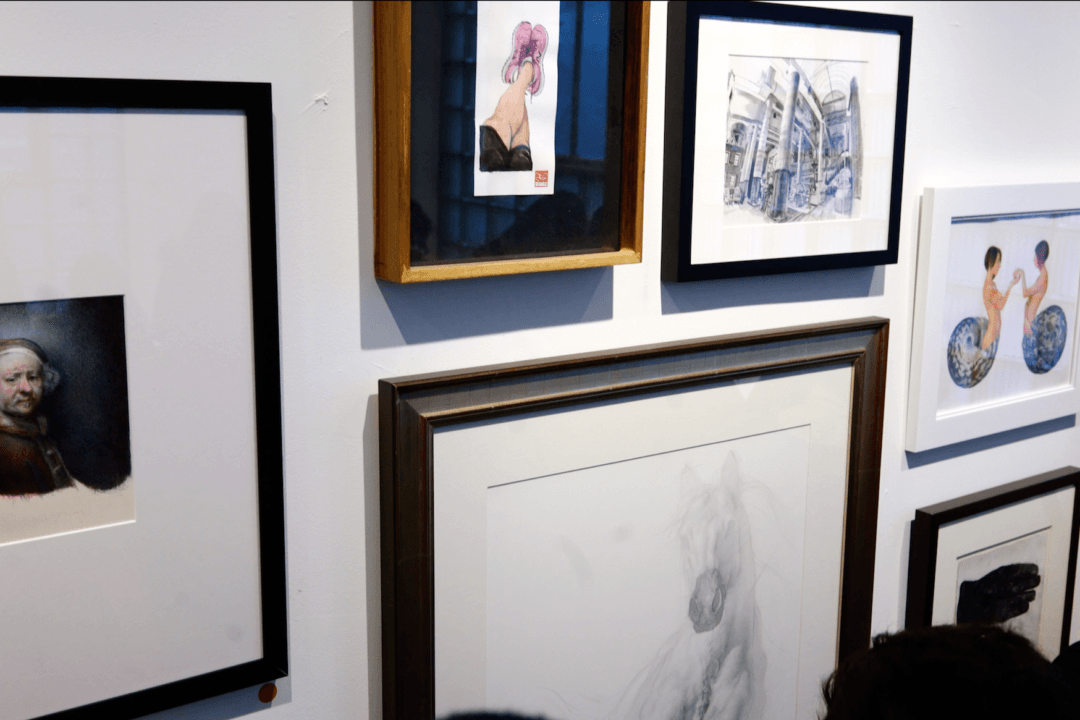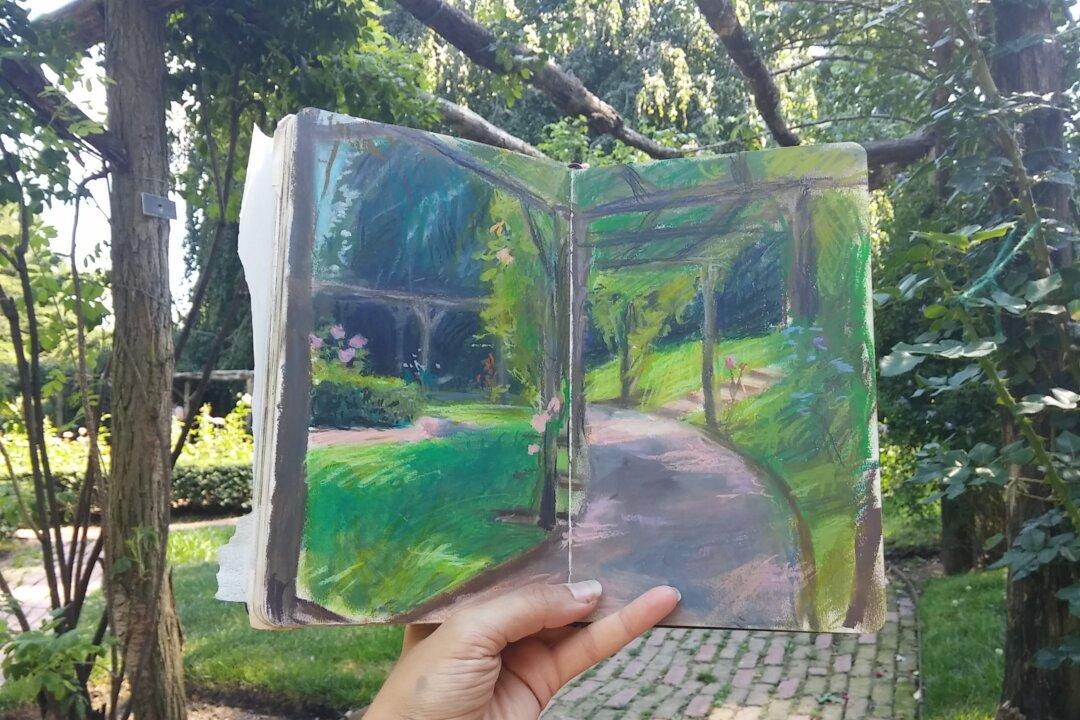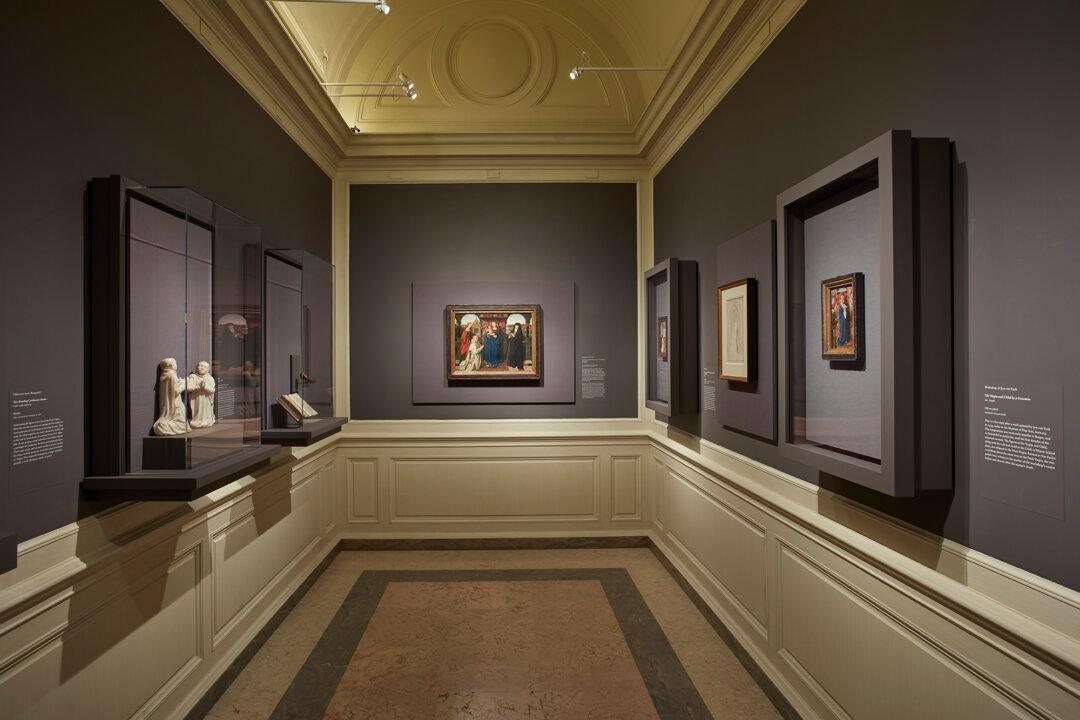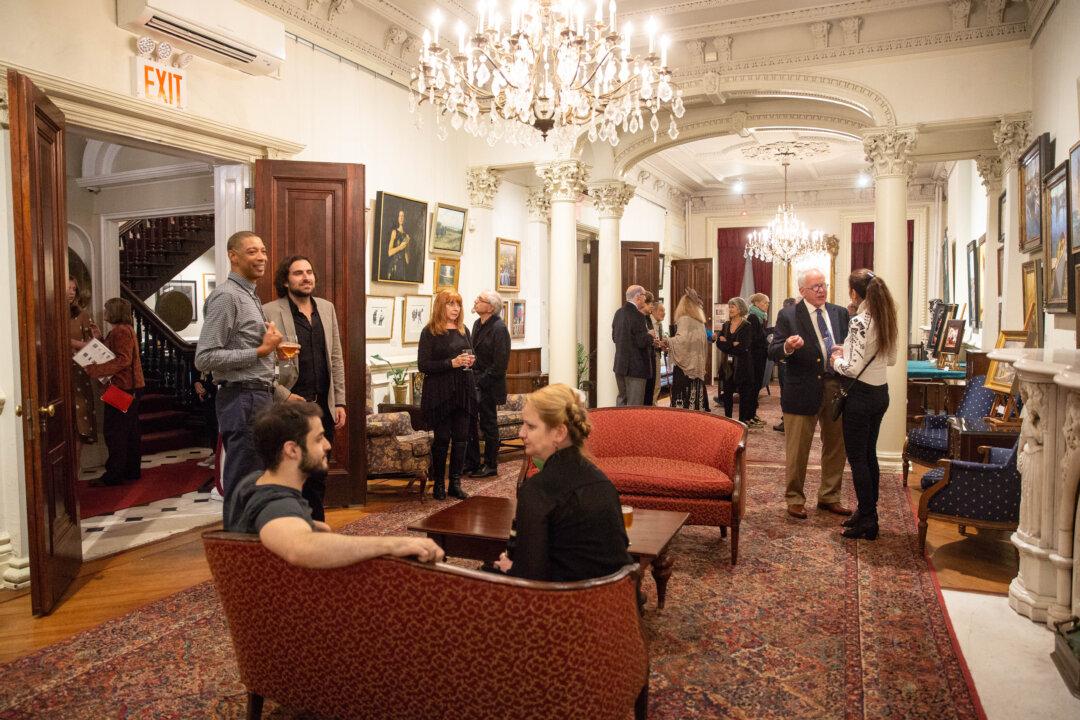NEW YORK—She didn’t just parachute into our television screens and blast over our radio waves out of nowhere. Petite and light on her feet, trailblazer Maria Hinojosa started with one report at a time, when she was a 19-year-old intern at NPR.
Thirty years later, today it’s easy to say—despite her quiet gate and slim figure—Hinojosa is definitely a heavyweight champion in the world of journalism. She has won numerous prestigious awards, including the Walter Cronkite Award, the Robert F. Kennedy award, the Edward R. Morrow award, the Studs Terkel award, as well as four Emmys, among many other honors.
“I don’t walk around saying: ‘Oh, I’m a leader in media,’” she said jokingly in a lower voice. “I don’t walk around like that, but I understand that because of where we are in history, I have a particular role to play now.”
There are not many Latin-Americans in mainstream news media, even today when Latinos are one of the fastest growing demographic groups in the country, second only to Asians.
Currently there are about 54 million Hispanics living in the United States, making up about 17 percent of the population. That percentage is projected to go up to about 28 percent by the year 2050, according to the U.S. Census Bureau.
“I feel a tremendous sense of mission because I was one of the first ‘Latinas’ in many positions,” she said. She was the first Latino correspondent for NPR, CNN, and PBS, and the first Latina to anchor “Frontline.”
